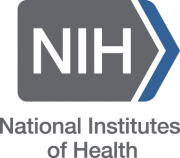Posted on May 13, 2019
Source: NIH

"Basic biomedical research is as important today to ending the HIV pandemic as it was in the early days of AIDS. Much progress has been made: Advances in basic research conducted at the National Institutes of Health (NIH) and its grantee institutions have precisely delineated the HIV replication cycle. Research also has yielded a clear understanding of the many fundamental mechanisms by which HIV weakens and suppresses the immune system and ultimately leads to disease progression. These landmark findings have fundamentally changed science and resulted in highly successful, evidence-based strategies for HIV prevention, treatment, and care. In addition, HIV research has led to numerous advances outside the HIV field."
"Despite significant scientific advances, many important questions about HIV remain unanswered. These outstanding questions are particularly critical to the pursuit of a safe and highly effective HIV vaccine and a cure. Additionally, the basic biology of many critical co-infections, including tuberculosis and hepatitis B and C, remain essential research avenues that must be explored and addressed to improve the health of people with HIV."
"The National Institute of General Medical Sciences (NIGMS) has a rich history of fostering fundamental HIV research. Recently, NIGMS leadership had the strategic insight that this portfolio should be combined with the existing basic research program at NIAID to maximize collaboration and better leverage existing resources. NIGMS has excelled in fostering this research for 37 years, and we are honored to welcome their researchers into our scientific community."